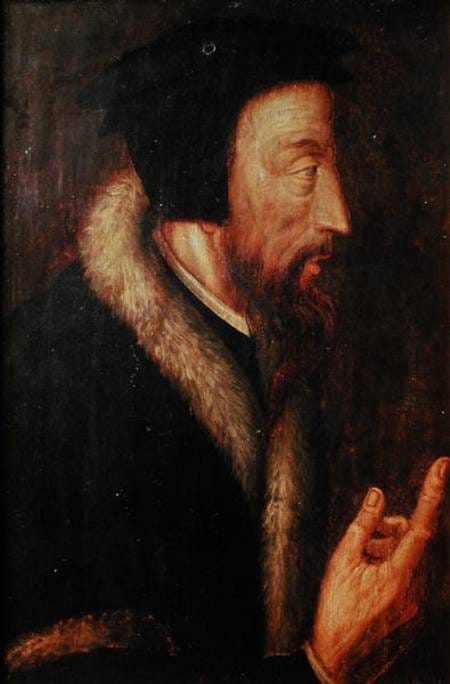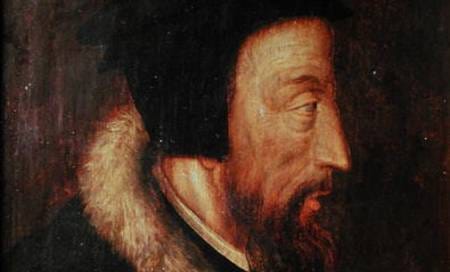John Calvin on “True Happiness”
Doesn’t it seem like we are always chasing happiness? We desire fulfilling and lucrative work. We want not only comfortable but also pleasant accommodations. We expect to have discretionary income to enjoy Friday night pizza and trips to the beach and the symphony. We believe these things make us happy.
John Calvin considers a similar mindset in his Commentary on a Harmony of the Evangelists, Matthew, Mark, and Luke, where he discusses the Sermon on the Mount:
We know that not only the great body of the people, but even the learned themselves, hold this error, that he is the happy man who is free from annoyance, attains all his wishes, and leads a joyful and easy life. At least it is the general opinion, that happiness ought to be estimated from the present state.

The American dream seems to promise such a way of life, and it is easy to buy into this thinking, being submerged so deeply in the culture we live in. And if I’m honest with myself, I have to confess that these are the very things that I believe I should enjoy and that the lack of them makes me feel as if I am missing something.
Calvin points to Christ’s teaching in the Sermon on the Mount as a foil to the perennial human desires to find happiness in this life, and there he addresses what Christ taught his disciples about “true happiness.” Far from leading “an easy and prosperous life according to the flesh” as the way to happiness, Christ offers the way of the cross. He wants “to accustom his own people to bear the cross.” As Calvin notes,
It is impossible that men should mildly bend the neck to bear calamities and reproaches, so long as they think that patience is at variance with a happy life. The only consolation which mitigates and even sweetens the bitterness of the cross and of all afflictions, is the conviction, that we are happy in the midst of miseries: for our patience is blessed by the Lord, and will soon be followed by a happy result.
Happiness is found in patience. This is the counterintuitive message of Calvin—or, as he would say, of Christ. Patience tempers our hopes for what can be achieved or secured in this world and drives us to find God’s greater blessing in a world beyond our own. Such thinking goes against “the common opinion,” for “carnal reason will never admit what is here taught by Christ.” But those who would follow Christ, Calvin warns, “must learn the philosophy of placing their happiness beyond the world, and above the affections of the flesh.”
As Calvin puts it, what Christ teaches is not “imaginary”—though we are certainly tempted to think it is, since it is not tangible in our temporal experience. Rather, it is a “fact,” a fact “that those persons are truly happy whose condition is supposed to be miserable.” Thus, in the Beatitudes, the opening of the Sermon on the Mount,
not only does Christ prove that they are in the wrong, who measure the happiness of man by the present state, because the distresses of the godly will soon be changed for the better; but he also exhorts his own people to patience, by holding out the hope of a reward.
As we feel pulled and pushed always to pursue greater happiness in this world, the Christian expectation is to be marked by patience. We are to expect disappointment and trouble and opposition. We are not to be surprised by bad news (cf. Ps. 112:7). But we are to patiently wait on the Lord and look ahead to the “true happiness” that Christ preached about and that Calvin here reminds us of. Though it goes against the grain of our culture—and of our own inner appetites—patience is the path to “true happiness.”



